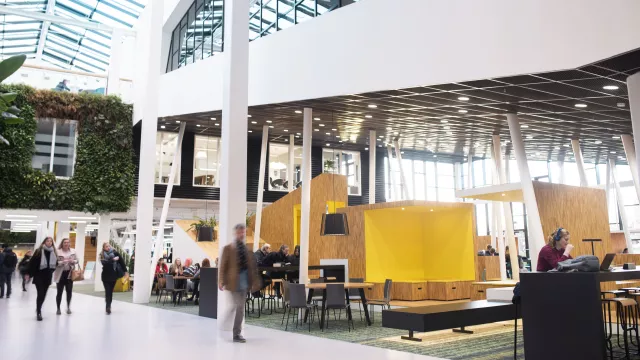Module 1 Experience & Theory Design in Leisure, Tourism and Events (6 EC)
Gain insight into how academic disciplines such as philosophy, human geography, sociology, anthropology and cultural studies contribute to the field of leisure, tourism and events. In groups, you will work on a design challenge faced by the industry, exploring viable solutions that contribute to the United Nations Sustainable Development Goals. Storytelling, transformative and immersive experiences, the role of technology and other aspects will be part of the design challenge.
Module 2 Performance and Impact Management in Leisure, Tourism and Events (6 EC)
Explore how different leisure sectors (sports, events, tourism, recreation, arts and culture) contribute to quality of life (QoL) in society. QoL has become a common aim in international development efforts and is a desirable outcome of activities in the field of leisure, tourism and events. You will explore how both subjective and objective indicators of quality of life can be used to identify ways in which activities (and the solutions you proposed in module 1) can affect residents’ QoL.
Module 3 Transition & Risk Management Of the visitor economy of the future (6 EC)
Analyse, interpret and reflect on tourism and leisure developments and form visions that help the industry prepare for the future and respond adaptively to risks and change. You use scenario planning methodologies and work with the European Tourism Futures Institute as you focus on responding to risks such as climate change, labour market challenges, and other global challenges.
Module 4 Public Management of the visitor economy of the future (6 EC)
You will focus on the critical analysis of public policy making and planning processes in leisure, tourism and events in different contexts and at different levels. You will learn about the way political ideologies influence policy processes and decisions, the role of the state versus the market and the rights of the citizens and their implications for leisure, tourism and events policy as. Last but not least, you will become familiar with a number of planning frameworks and tools in public policy making.
The modules 1 to 4 will be assessed individually (exam, 60%) and by group work (design challenge, 40%)
Personal Professional Development (3 EC)
Work on your international professional network, LinkedIn profile, project management, and sustainable leadership skills.
Research (3 EC)
Gain insight into research methodologies and how to apply them in leisure, tourism and events studies. Research skills will be applied during the design challenges in semester 1.




